Many children living in urban areas no longer understand where the food on our plates actually comes from. A project from Brandenburg wants to change that. Ackerdemia is bringing the veggie patch into the school and convinced the jury of the KfW Entrepreneurs' Award 2018. The project won the Social Entrepreneurship special prize 2018.
Prize-winning
The Ackerdemia project has convinced the jury and was awarded the Social Entrepreneurship special prize of the KfW Entrepreneurs' Award 2018 (KfW Group/n-tv). This video is only available in German.
Outside the office in Berlin, a garden spade stands next to a pair of bright wellington boots. Inside the office, Polly the golden retriever roams around the large, sunny space. Christoph Schmitz stomps his feet to get the earth off his shoes. He has just been to collect a few sprigs of basil from the company's own vegetable patch. Two members of staff sprinkle it over the salad and lay the large table in the hall. It's lunchtime at Ackerdemia.
“I grew up surrounded by fields and without any neighbours. I started sorting potatoes when I was still really young. Then, as soon as I could see over the steering wheel, I was driving the tractor,” he says with a smile. “School groups often came to visit us to find about farming as part of their lessons. They would pull potatoes out of the ground and then use them to make chips. Nowadays, children often are not aware of how much effort is needed just to grow something. They no longer have easy access to nature and, as a result, have lost their appreciation for food.”
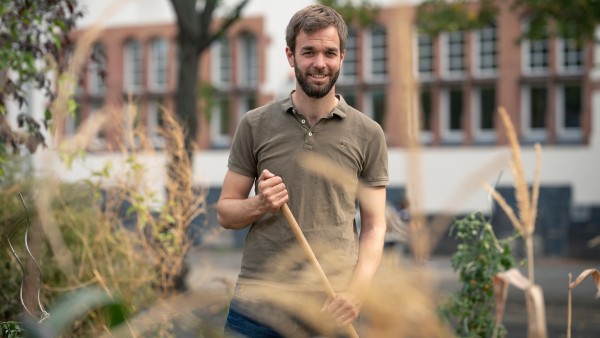
Experienced founder
Dr Christoph Schmitz grew up in the countryside. He founded Ackerdemia in 2014 along with Ulrike Päffgen and Julia Krebs.
This is where Ackerdemia comes in. This socially conscious company's name is a play on the German words for 'crop field' and 'academia'. It runs a 'GemüseAckerdemie' (vegetable academy), which offers a theory- and practice-based curriculum for schools and kindergartens. The cooperation between the company and a school runs for at least one year.
And yet, if you talk to schools about natural locations for learning, they often have three main objections: no space, no time, no money. However, no school playground is made completely of concrete. There is always a spot of soil somewhere. If necessary, raised beds are always an option. The project takes up just two hours a week. And the school only has to bear one third of the costs. The remaining financing is provided by Ackerdemia, supported by funds from health insurance companies, ministries, and charitable trusts. The GemüseAckerdemie is therefore open to any school.
Ackerdemia provides the school with a wide range of educational material. The schools themselves decide which lessons should incorporate the concept – it can be tailored to anything. So, it's not just biology that can be taught on the veggie patch. At a school in the German city of Mönchengladbach, it was an religion teacher who took up the idea. After all, growing vegetables is the best way to learn about creation. The school's maths teacher also visits the patch to help pupils to calculate the yield, while the art club sits on the grass and sketches the plants.
Read more under the image gallery.
Group work
In the classroom, each pupil works on its own, but teamwork is required in the garden.
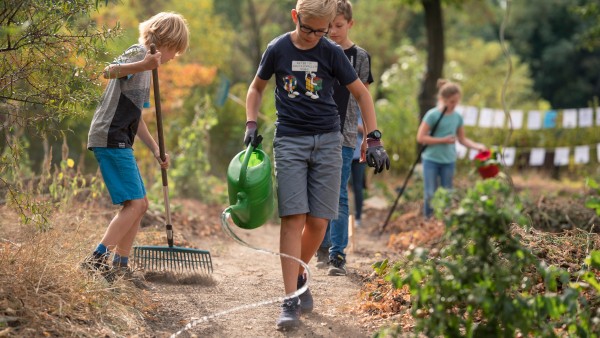
Care and nurture
Children who have looked after their own vegetable patch develop a greater awareness of nature.
“We've got some participants interested in setting up a school garden who have never grown a plant at home. However, this won't be an obstacle to their success. In fact, it's a great prerequisite because it means that they learn at the same time as the children, which builds trust and brings the group together. An open mind and motivation are all that's needed. Our regional managers support our teachers and they can call us whenever they need to.”
Once the vegetables are ripe, the children not only get to eat them but sell them, too. They set the prices themselves and organise the sales process. This creates a far better understanding of the link between nature, nutrition and the economy than any normal school lesson.
KfW Entrepreneurs' Award 2018
In October 2018, the KfW Entrepreneurs' Award (formerly known as GründerChampions (StartUp Champions)) recognised 16 state winners and one national winner for their business ideas. Ackerdemia won the Social Entrepreneurship special prize.
Learn moreAckerdemia works with 200 schools in Germany, Austria and Switzerland along with 80 kindergarten programmes. The concept that has been developed undergoes an in-depth analysis on a regular basis. The latest impact report revealed that children not only know more about food, they are in closer contact with nature and eating more healthily. As the projects progress, their actions become more geared towards responsibility and social awareness, and they also develop a greater interest and appreciation for the environment. They also take these changes home with them. A parent survey revealed that food and nature had taken on a greater importance within families.
The team from Ackerdemia has managed to achieve something that many anti-food waste campaigns or healthy eating initiatives have struggled with. “Anyone who picks a radish that they have grown themselves really appreciates it. This is the first step towards greater sustainability and a conscious approach towards nature and its resources. We are working hard to make sure that a vegetable patch becomes as intrinsic a part of school as maths, PE and German.
Published on KfW Stories: Tuesday, 16 October 2018
The described project contributes to the following United Nationsʼ Sustainable Development Goals
Goal 4: Quality education
Refusing people access to education means depriving them of a basic human right – and of important development prospects for individuals and society. Education enables people to improve their political, social, cultural, and economic situations. Worldwide, 58 million children and 63 million young people still do not have access to primary and secondary schools. 90 per cent of all children with a disability never go to school. 781 million people are illiterate. 7.5 million people with functional illiteracy live in Germany alone.

All United Nations member states adopted the 2030 Agenda in 2015. At its heart is a list of 17 goals for sustainable development, known as the Sustainable Development Goals (SDGs). Our world should become a place where people are able to live in peace with each other in ways that are ecologically compatible, socially just, and economically effective.

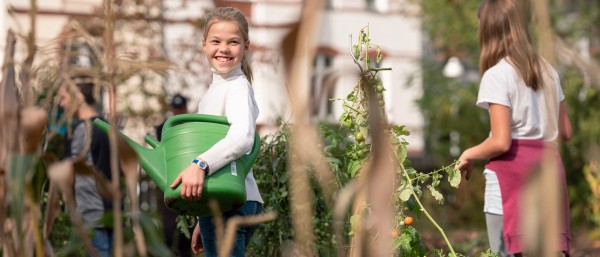
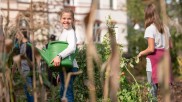
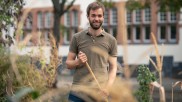
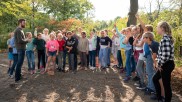
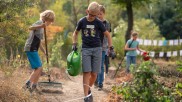
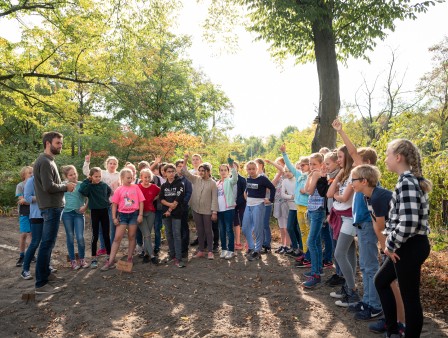
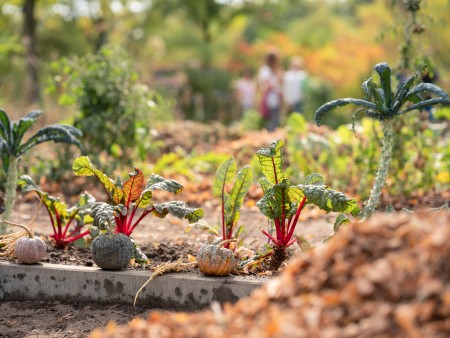
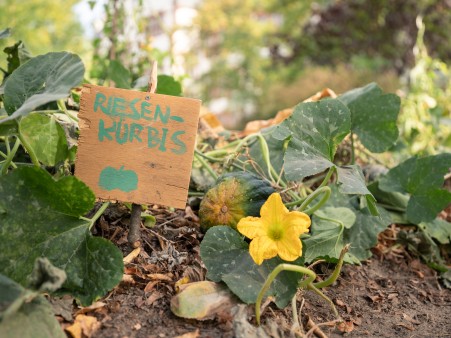
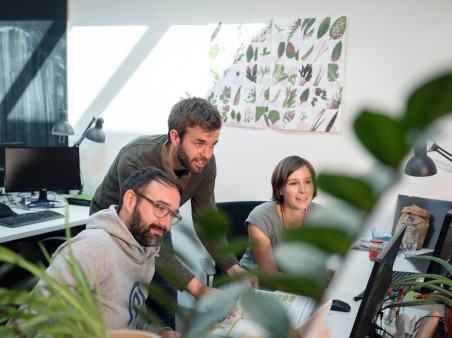
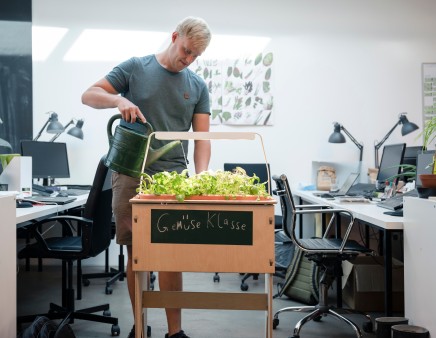





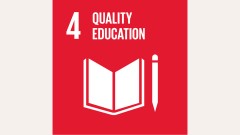
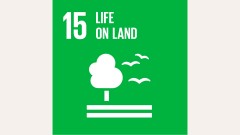

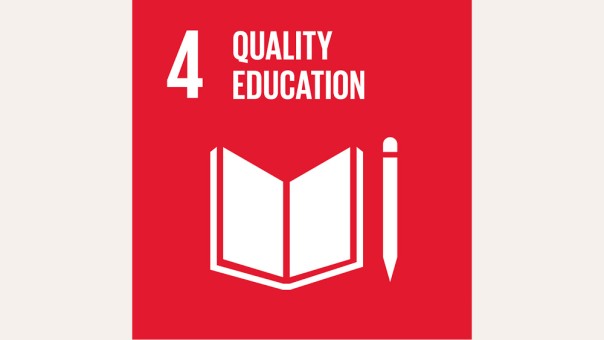
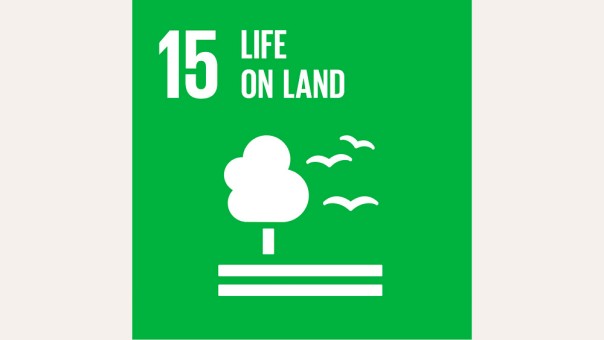


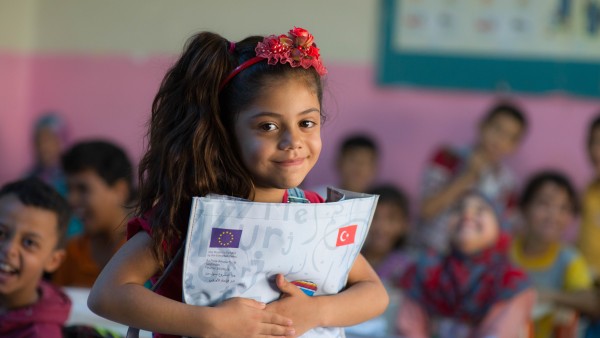

Data protection principles
If you click on one of the following icons, your data will be sent to the corresponding social network.
Privacy information